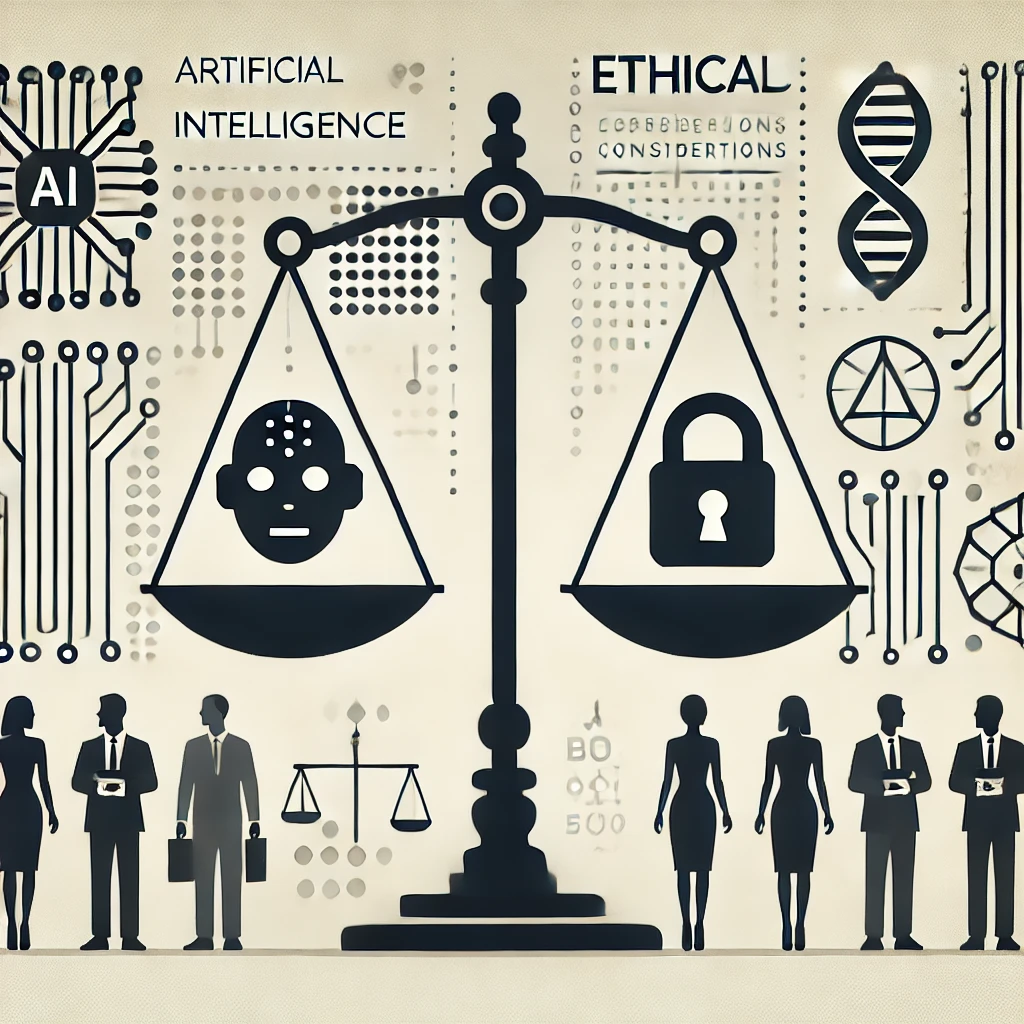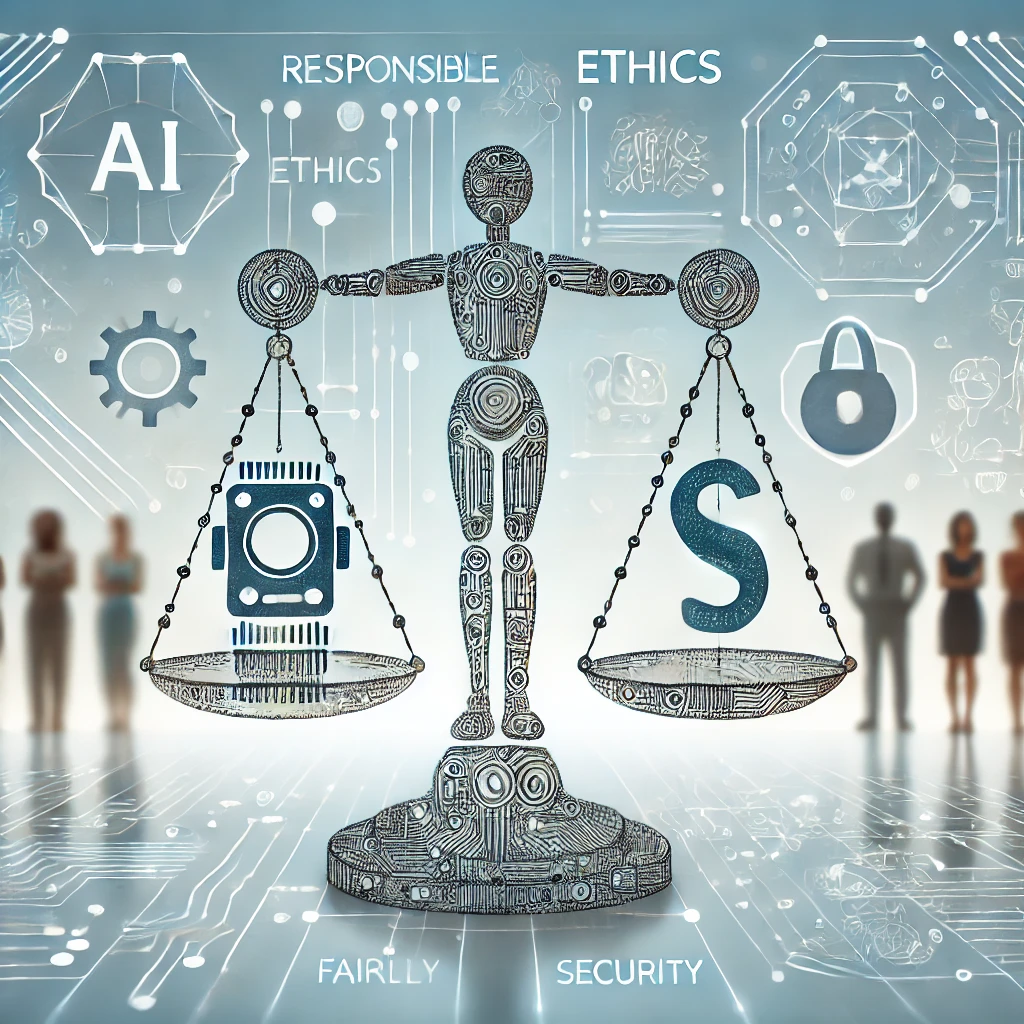Introduction
Artificial Intelligence (AI) has become a buzzword in recent years, reshaping industries and revolutionizing how we interact with technology. But as we race towards ever-greater innovations, a crucial question looms: how do we balance this drive for progress with our ethical and social responsibilities? Striking this balance is not just desirable—it’s essential for ensuring that AI innovation benefits society as a whole.
The Rise of AI Technology
Brief History of AI
From its inception in the mid-20th century, AI has evolved dramatically. Early systems were rudimentary, relying on basic rules and logic. Today, we witness advanced algorithms that can learn, adapt, and perform complex tasks, often surpassing human capabilities. This fast evolution has set the stage for AI to be a transformative force in various fields.
Current Trends in AI Development
As AI technologies continue to advance, we see trends such as machine learning, natural language processing, and robotics taking center stage. These innovations promise to enhance productivity, improve healthcare outcomes, and even tackle climate change. However, the speed of development raises questions about how responsibly these technologies are being integrated into our lives.
The Importance of Innovation in AI
Driving Factors Behind AI Innovation
Innovation in AI is fueled by factors such as increased computational power, vast amounts of data, and the growing need for automation. Businesses are eager to harness AI’s potential to streamline processes, enhance decision-making, and deliver personalized experiences.
Benefits of AI Innovations Across Sectors
AI’s impact is felt across numerous sectors. In healthcare, for example, AI systems can analyze medical data faster than human practitioners, potentially saving lives. In education, personalized learning experiences powered by AI can cater to individual student needs, leading to better educational outcomes.
The Responsibility Factor
Defining Responsibility in the Context of AI
Responsibility in AI encompasses ethical considerations, such as fairness, accountability, and transparency. As AI technologies become more embedded in decision-making processes, ensuring these systems operate fairly and without bias becomes paramount.
Ethical Considerations in AI Development
Developers and organizations must confront the ethical implications of their AI systems. Questions about data privacy, consent, and algorithmic bias are at the forefront of discussions about responsible AI development.
Case Studies of AI Innovation
Example 1: AI in Healthcare
In healthcare, AI technologies are streamlining patient care. For instance, diagnostic tools powered by AI can analyze images to detect diseases like cancer at earlier stages than human radiologists. However, the use of AI must also address issues of data privacy and the potential for misdiagnosis.
Example 2: AI in Education
AI is transforming education through personalized learning platforms. These systems analyze student performance and adapt content accordingly. However, this raises concerns about data collection and the potential for algorithmic bias in educational assessments.
Example 3: AI in Environmental Conservation
AI applications in environmental conservation, like using drones to monitor deforestation or AI models predicting climate change impacts, show immense potential. Yet, these innovations must be developed with an understanding of local contexts and potential ecological consequences.
Potential Risks of AI Innovation
Bias in AI Algorithms
One significant risk is the potential for bias in AI algorithms. If these systems are trained on biased data, they can perpetuate and amplify existing inequalities. This issue demands vigilant oversight and continuous refinement.
Privacy Concerns and Data Security
As AI systems collect and process vast amounts of personal data, privacy concerns loom large. Organizations must prioritize data security and transparency to foster trust among users.
Job Displacement Due to Automation
While AI can enhance efficiency, it also poses a risk of job displacement. Workers in roles susceptible to automation may find themselves needing to reskill, raising questions about the future of work and economic inequality.
Frameworks for Responsible AI Development

Guidelines for Ethical AI
Several organizations and researchers have proposed guidelines for ethical AI development. These frameworks emphasize the importance of fairness, accountability, and transparency in AI systems.
The Role of Policymakers and Governments
Policymakers play a crucial role in establishing regulations that promote responsible AI use. By creating standards for transparency and accountability, they can help mitigate risks associated with AI technologies.
Strategies for Balancing Innovation and Responsibility
Collaborative Approaches Between Tech Companies and Regulators
Fostering collaboration between tech companies and regulators is vital. By working together, stakeholders can ensure that AI innovations are developed responsibly and in alignment with societal values.
Importance of Transparency in AI Systems
Transparency is critical in building trust in AI systems. Developers must communicate how their algorithms work and the data they use, enabling users to understand and evaluate these technologies better.
The Role of Education in Responsible AI Use
Educating Developers on Ethical AI Practices
Education plays a vital role in ensuring responsible AI development. By integrating ethical considerations into computer science curricula, we can prepare future developers to navigate the complex moral landscape of AI.
Public Awareness and Understanding of AI
Raising public awareness about AI technologies and their implications is equally important. By fostering a better understanding of AI, individuals can engage more meaningfully in discussions about its use and regulation.
Future Directions in AI Innovation and Responsibility
Predictions for the Next Decade
Looking ahead, the next decade will likely see even more advanced AI systems. However, this growth must be accompanied by robust frameworks for accountability to ensure technology serves the greater good.
The Evolving Role of AI in Society
AI’s role in society will continue to evolve, influencing everything from healthcare to environmental sustainability. Balancing innovation with responsibility will remain a pressing challenge that requires ongoing dialogue and action.
Conclusion
In conclusion, the journey of AI innovation must be navigated with a keen sense of responsibility. As we continue to push the boundaries of technology, prioritizing ethical considerations will ensure that AI serves as a force for good. The future of AI depends not only on our capacity to innovate but also on our commitment to building a responsible and inclusive framework that guides its development.
FAQs
What is the biggest challenge in balancing AI innovation and responsibility?
The biggest challenge is managing the rapid pace of technological advancement while ensuring ethical considerations, transparency, and accountability are prioritized.
How can companies ensure responsible AI use?
Companies can implement ethical guidelines, conduct regular audits, and promote diversity within their teams to mitigate biases and enhance accountability.
What role does the government play in AI regulation?
Governments are essential in creating regulations and standards that promote ethical AI development, ensuring technologies align with societal values and protect public interests.
How can AI benefit society while minimizing risks?
By developing frameworks that emphasize fairness, transparency, and collaboration, AI can be harnessed to address societal challenges while mitigating risks.
What can individuals do to promote responsible AI development?
Individuals can advocate for transparency, participate in discussions about AI ethics, and support organizations that prioritize responsible AI practices.
Read more about on ai relevent discovery: Azure OpenAI vs AWS Bedrock? Choose the Right AI Platform











Leave a Reply